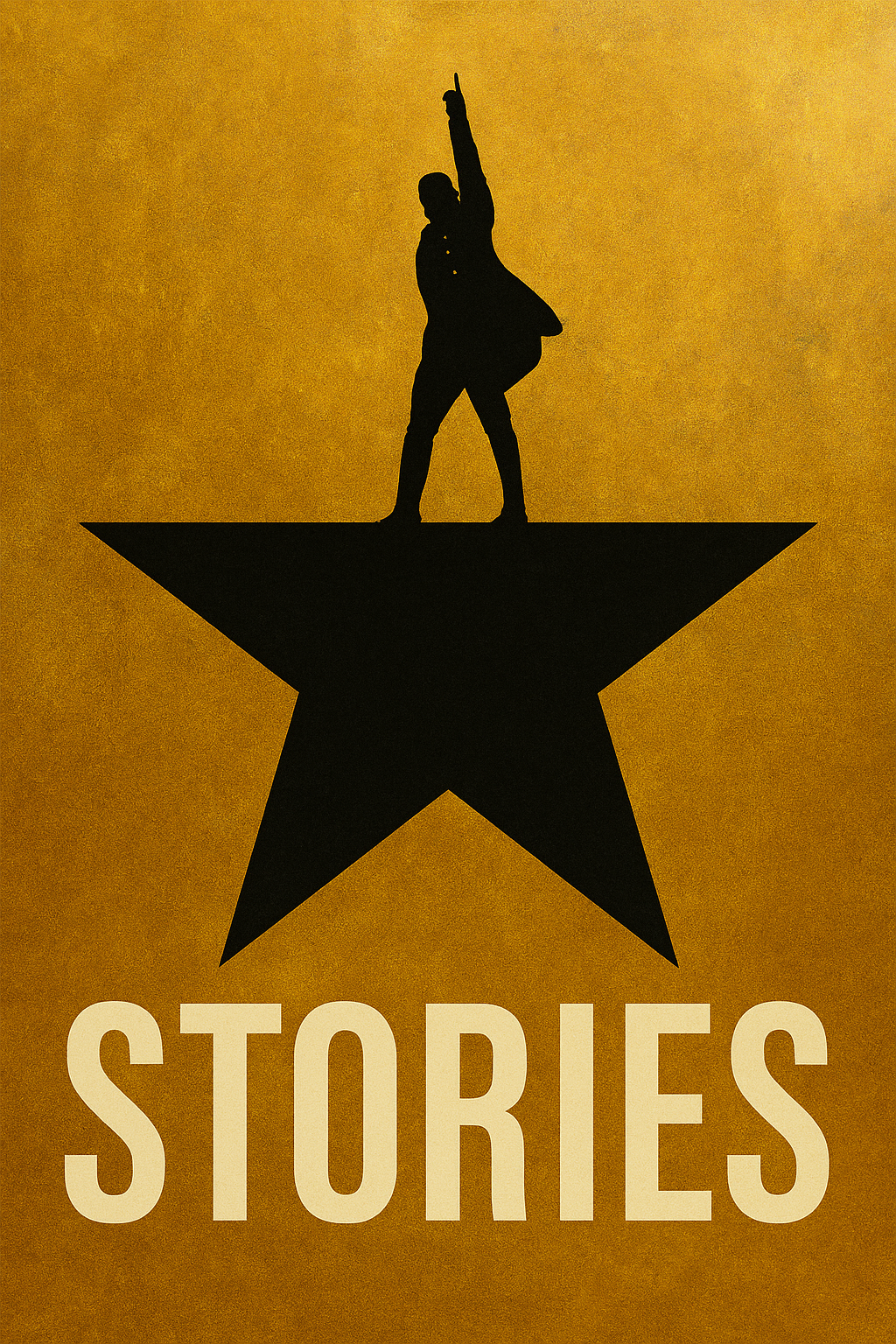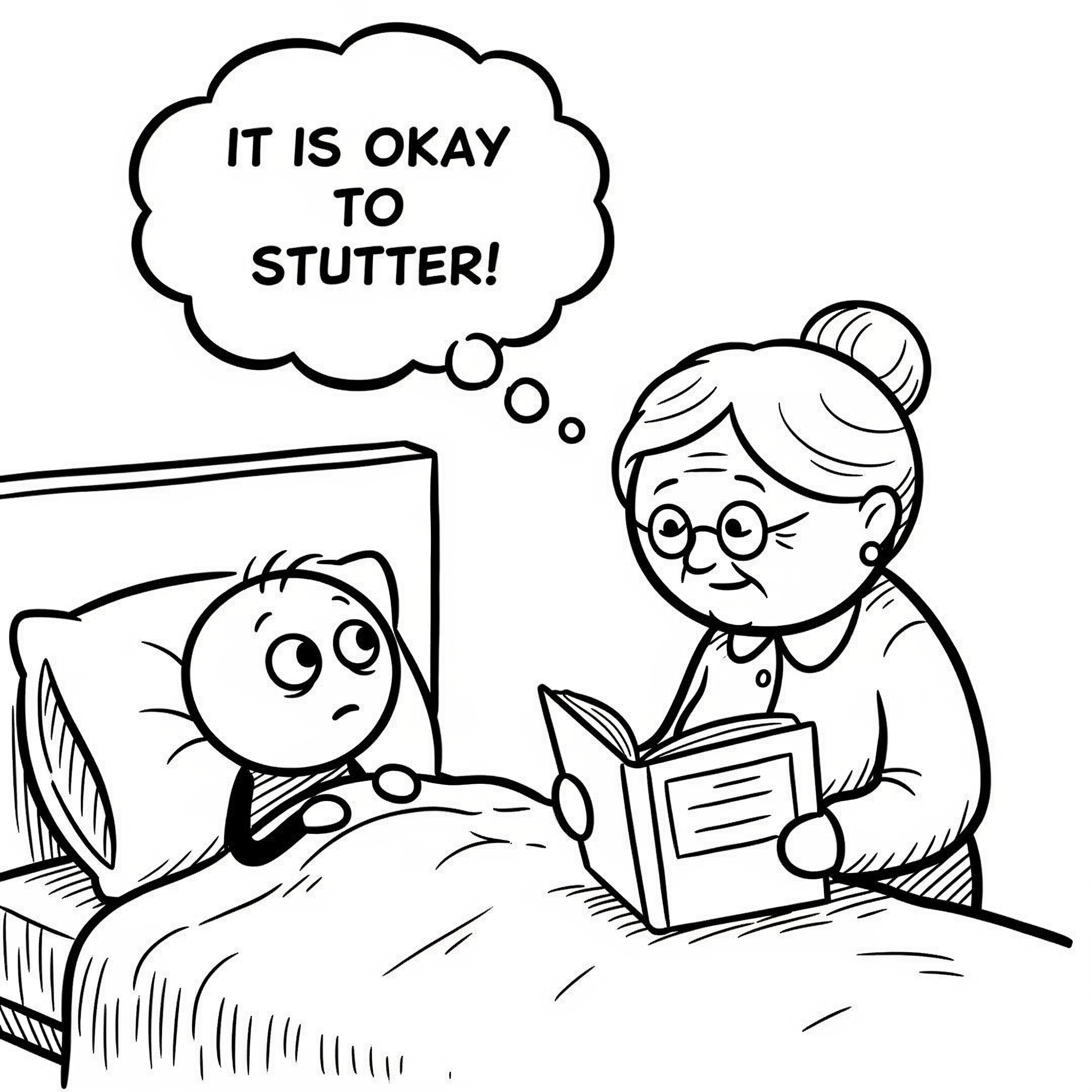Introduction
“We are the stories we are told and we are the stories we tell ourselves”
This quote from the Canadian indigenous lawyer and writer, Harold R. Johnson has stuck with me ever since I stumbled onto it. I have found myself thinking about it a lot. After all, it is such a powerful thought. We are going to talk about stuttering, I promise! But indulge me for a second here.
Power of Stories and How We Form Them
When you think about it, everything we know, learn, hear, and internalize is just stories. Racial stereotypes, our values, commonly held misconceptions, opinions about how the world works, etc. All of them are stories that have been created, solidified, and passed down from one human to the next. Even the facts you believe about yourself—like what you’re good at or what you enjoy—are all stories. You think you are a bad listener or you are forgetful—that opinion probably stemmed from a thought you had once or a remark from another person, strengthening over time by reinforcement. So I hope that you, the reader, would agree with me in spirit when I say that:
Stories are really freakin’ powerful. Stories are what divide us and what unite us. Stories are what start wars and bring about peace. Stories shape how we see the world and how we see each other.
So when Harold R. Johnson says that we are the cumulation of all the stories that other people and we have told ourselves, over the years—he is not exaggerating. By stories, I don’t mean that they are fiction. I am not implying that, even though you think you are a good cook, you actually are not. I am sure you make a delicious pasta :)
Stories here mean ideas, opinions, or values that one believes to be true because of the associated evidence over time. Every time new evidence gets tacked on, the story becomes stronger. I believe I have a bad long-term memory and I cannot remember the little details. Every time I exclaim “No, we didn’t talk about this” or “This didn’t happen!” and my best friend proves me wrong, which by the way she does only after giving me her “Seriously?” face—this belief becomes stronger (and so does her authority on the realities of the past 😂).
Objectively, stories could be true or false. If you want to challenge a story or want to assess its accuracy—all you have to do is go out and collect evidence. The more you test it, the more evidence you will collect. The more evidence you collect, the stronger or weaker the story becomes.
That’s All Good, but Hello… Stuttering?
At this point, you may start to get a hint of how all this ties back to stuttering. Every person who stutters (PWS) has stories about their stutter and their relationship with it. You might relate to some of most common ones I have come across:
- As a PWS, I can not take up people’s time and my space.
- People will judge me or won’t listen to me if I stutter.
- Stuttering is not conducive to effective communication.
- Stuttering is perceived as weak, and you do not come off as confident.
- Stuttering openly and achieving success (whatever your definition maybe) are incompatible.
I could go on, but brevity requires me to stop somewhere. Some people also refer to these stories as stuttering gremlins. I am not one to say which of your stuttering stories are true or which are false. Some stories are our own creations, while others we inherit from society. Media representation plays a significant role here. Negative portrayals of stuttering or a lack of positive ones shape the opinions of not only people who stutter, but also of the fluent population. There is a reason why they say that representation matters.
But the common denominator is that all of them are deeply personal. These stories dictate how we think and feel about our stuttering. These stories dictate the impact we allow stuttering to have on our lives. And these stories also dictate how we are willing to approach stuttering in the future. For something that holds so much power over us, isn’t it worth taking a stock of what stories we have told ourselves? Even if we are not willing to change them yet, being aware never hurts, right?
Changing Our Stories
When we do take an honest look at what we have been telling ourselves, it isn’t uncommon for people who stutter to realize that many of the stories they’ve been telling themselves are unhealthy. In my stuttering journey, I have been deeply amazed by the stories I was holding onto. Two of the biggest ones were: I am not allowed to take up people’s time and my space and People do not understand me when I stutter. I have worked to test these and collect evidence—by stuttering my ass off at restaurants, stores, with friends and strangers—making everyone uncomfortable and taking up their time 😝 I am happy to report my findings—these do not hold up for me. If I have something to say, it is worth the listener’s time to wait for.
When I took a stock of my stories, understood the power of collecting contradictory evidence, and realized I could slash my gremlins—it was pretty mind-boggling. Going through this journey and forming new narratives, new stories, has been a transformative experience and absolute joy. These are what my stories look like now:
- As a PWS, I can take up people’s time and my space.
- People might judge me, and if they do, it is fine. No one can control what others think.
- You can stutter openly and be an effective communicator.
- Being open about stuttering means showcasing vulnerability, which is a sign of strength.
Hearing from others is also very powerful. After all, we are also shaped by what people tell us. So when I heard from other PWS that, for example, they take up time and space when stuttering, I started to internalize that it is okay to do so.
Have I nudged you to give this exercise a try? Let’s go! You could start by analyzing what stuttering gremlins you carry in your backpack, if and how they are having a life impact, and how you can get contrary evidence to weaken them. And then off you go collecting evidence, and finding the stories that you haven’t seen yet, and all the while making new ones. What a process! And hey, who knows- as you embark on this journey, you might become a positive story for someone else someday :)
A Story of Stories
The inspiration to write this post came after I attended Prof. John Wade’s talk on “Changing the Narrative: Authoring Our Own Stories” at the NSA 2025 Annual Conference. So many attendees shared wonderful examples of their stories and how they changed the narrative. One of them stood out to me in particular. This one gentleman shared how he had this long-standing belief that no one would ever enjoy listening to him read a book, because he stutters. Recently, he started reading books to his spouse. This has helped to change his narrative, and he now enjoys reading out loud. And you know what the best part is? His spouse absolutely loves it. What a powerful example!
Final Thoughts
Auditing our personal stories isn’t specific to stuttering. It is quite a well-known philosophy, especially in narrative therapy, and extends well to other areas of life. But I was compelled to write something because of how much power stories have on people who stutter—for better or worse.
As a further reading resource, I like the chapter - “One story at a time: Using a narrative approach in self-therapy” in the book: Stammering Pride and Prejudice: Difference not Defect by J.R. Press.
It is also important to note that not all the stories you hold are categorically false. Some might be just outdated. Stories are built over time, incepted by your past self. They might have been true for you at some point. So setting an alarm and periodically checking in with yourself is not a bad idea.
Finally, for all the Hamilton fans out there (myself included), do you remember the song “Who Lives, Who Dies, Who Tells Your Story”? This is how it goes:
| |
Well, guess what, as long as you are alive - You do get to decide what stories you tell yourself. So go and make one today!

